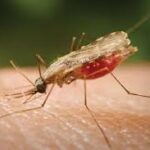A Comprehensive Guide to Holistic Health: Everything You Need to Know

Holistic health is an approach to well-being that considers the whole person—body, mind, and spirit—rather than focusing solely on symptoms or diseases. It integrates natural and conventional medicine, lifestyle practices, and emotional well-being to promote overall health. This guide explores the principles of holistic health, key healing modalities, and practical ways to incorporate holistic practices into daily life.
1. What is Holistic Health?
Holistic health is based on the idea that all aspects of a person’s life—physical, mental, emotional, and spiritual—are interconnected. Instead of just treating illness, holistic health focuses on prevention, lifestyle changes, and natural healing.
Core Principles of Holistic Health:
- Whole-Person Approach: Treating the body, mind, and spirit as an integrated system.
- Prevention First: Focusing on healthy habits to prevent illness rather than just treating symptoms.
- Natural Healing: Using diet, exercise, herbs, and mindfulness practices before resorting to medications.
- Personalized Care: Understanding that each person’s health journey is unique and requires individualized approaches.
2. The Five Pillars of Holistic Health
Holistic health is built on five core pillars, each of which plays a vital role in maintaining overall well-being.
1. Physical Health
Physical health involves caring for the body through proper nutrition, exercise, rest, and natural remedies.
Key Components:
- Nutrition: Eating whole, organic, and nutrient-dense foods.
- Exercise: Engaging in regular movement such as walking, yoga, or strength training.
- Sleep: Prioritizing restful sleep to allow the body to heal and regenerate.
- Detoxification: Eliminating toxins through natural cleansing methods, such as herbal teas and fasting.
2. Mental Health
Mental well-being is essential for overall health. Stress, anxiety, and negative thoughts can weaken the immune system and contribute to disease.
Key Components:
- Mindfulness: Practicing meditation and deep breathing exercises.
- Positive Thinking: Replacing negative self-talk with affirmations.
- Cognitive Health: Engaging in activities that stimulate the brain, such as reading or puzzles.
- Emotional Expression: Allowing yourself to process emotions in a healthy way through journaling or therapy.
3. Emotional Health
Emotional balance is crucial for preventing stress-related illnesses. Repressed emotions can manifest as physical ailments, making emotional awareness and expression vital.
Key Components:
- Self-Awareness: Understanding your emotional triggers and responses.
- Healthy Relationships: Surrounding yourself with positive, supportive people.
- Stress Management: Using holistic methods like aromatherapy and adaptogenic herbs.
- Therapeutic Practices: Engaging in talk therapy, journaling, or artistic expression.
4. Spiritual Health
Spirituality is not necessarily religious but involves a sense of purpose, inner peace, and connection to something greater than oneself.
Key Components:
- Meditation and Prayer: Practicing daily mindfulness or spiritual rituals.
- Gratitude Practice: Keeping a gratitude journal to cultivate positivity.
- Connection with Nature: Spending time outdoors to enhance spiritual well-being.
- Service to Others: Giving back to the community to create a sense of fulfillment.
5. Social and Environmental Health
Holistic health extends beyond the individual to the environment and relationships. A toxic social or physical environment can impact well-being.
Key Components:
- Healthy Relationships: Nurturing friendships and family connections.
- Work-Life Balance: Ensuring professional life does not negatively impact health.
- Eco-Friendly Living: Using sustainable products and reducing exposure to chemicals.
- Community Engagement: Participating in social causes for a sense of belonging.
3. Natural Healing Modalities in Holistic Health
a. Herbal Medicine
Herbal remedies have been used for centuries to support the body’s natural healing processes.
Examples:
- Echinacea for immune support.
- Turmeric for reducing inflammation.
- Ashwagandha for stress relief.
- Aloe Vera for skin and digestive health.
b. Traditional Chinese Medicine (TCM)
TCM is based on restoring balance within the body using herbs, acupuncture, and dietary therapy.
Key Practices:
- Acupuncture: Stimulating energy flow through specific points in the body.
- Qi Gong: A combination of movement, meditation, and breathwork.
- Chinese Herbal Therapy: Using herbal formulas to support healing.
c. Ayurveda
An ancient Indian system of medicine that categorizes people into three doshas (body types): Vata, Pitta, and Kapha.
Key Practices:
- Ayurvedic Diet: Eating according to one’s dosha.
- Oil Pulling: Swishing coconut or sesame oil in the mouth for oral health.
- Abhyanga: Self-massage with warm herbal oils.
d. Homeopathy
A natural system of medicine that uses highly diluted substances to stimulate the body’s healing response.
Common Remedies:
- Arnica: For pain and bruising.
- Chamomilla: For calming nerves and improving sleep.
- Belladonna: For fever and inflammation.
e. Energy Healing
Practices that focus on restoring balance to the body’s energy fields.
Key Techniques:
- Reiki: A Japanese technique that channels energy through the hands.
- Chakra Healing: Aligning the body’s energy centers.
- Sound Therapy: Using frequencies from singing bowls and tuning forks.
f. Holistic Nutrition
A diet focused on whole foods, organic ingredients, and nutrient-dense meals.
Key Foods for Holistic Health:
- Leafy greens (kale, spinach)
- Healthy fats (avocados, nuts)
- Fermented foods (kimchi, kefir)
- Herbal teas (peppermint, chamomile)
4. How to Incorporate Holistic Health into Your Daily Life
- Start Your Day with a Mindful Routine
- Practice deep breathing or meditation upon waking.
- Drink warm lemon water to support digestion.
- Eat a Whole-Foods Diet
- Focus on organic, unprocessed foods.
- Avoid sugar, artificial additives, and excessive caffeine.
- Use Natural Remedies First
- Try herbal teas and essential oils for minor ailments before reaching for medications.
- Prioritize Mental and Emotional Well-being
- Engage in self-care activities such as journaling, yoga, or gratitude exercises.
- Stay Active
- Choose an activity you enjoy, whether it’s walking, dancing, or swimming.
- Limit Toxins and Chemicals
- Switch to natural cleaning and personal care products.
- Reduce exposure to pollutants and processed foods.
- Connect with Nature
- Spend time outdoors, practice grounding (walking barefoot on the earth), and soak up sunlight for Vitamin D.
- Get Restful Sleep
- Aim for 7-9 hours of sleep each night.
- Create a calming bedtime routine with herbal teas and essential oils.
Conclusion
Holistic health is a lifelong journey that empowers individuals to take charge of their well-being by integrating natural healing methods, lifestyle changes, and self-awareness. By focusing on the interconnectedness of mind, body, and spirit, holistic health provides a sustainable path to lasting wellness.
Would you like a printable PDF version of this guide or more personalized holistic health tips?



